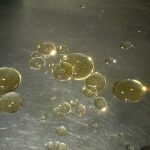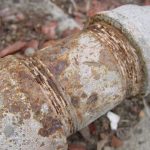Once you’ve become used to using a garbage disposal on a daily basis, it’s hard to imagine living without it. The capability to grind up certain scraps of food or meal prep detritus is a great time saver in a busy home. But, a garbage disposal does need some regular attention to ensure that it’s working efficiently. Keeping those blades sharp and preventing contamination that can lead to bad odors is important. Another key consideration and a frequent question asked by our clients is whether they should use hot or cold water. In this article, we will examine this topic in more detail to help you make an informed decision.
Operating the Garbage Disposal Efficiently
Many people will already know that they need to run water to assist the grinding action of the blades. This should be cold water, the force is required to get the blades working efficiently and to flush any particulates into the drain. Cold water also helps the blades to chop at any hard grease and fat deposits to prevent the formation of drain clogs. Discarded oils are at the core of many drain clogs because they are sticky and other materials stick to them. Gradually this can cause the clog to grow to a size where it fills the internal surface of the drain line and drainage cannot occur. Prevention is better than the cure, running cold water and keeping materials such as eggshells, bones, and coffee grinds out of the disposal is a smarter way to use the unit.
What Happens if I Use Hot Water?
If you choose to run the hot water tap when you’re using the garbage disposal, it can cause problems. We use hot water because it’s effective when we need to clean our hands or surfaces with soap to remove germs. But, when it comes to using the garbage disposal, this will not help and the extra heat is a hindrance. Either intentionally or accidentally, it’s inevitable that a certain volume of fat or grease will be present in most drains. When the hot water is running, this can cause these fats to melt and return to their liquid state. This may seem like a good thing because liquid fat must be easier to get rid of than solid fat. This is incorrect, because the fat is simply going further into the drain where you cannot reach it easily and it will become solid again. Eventually, this will cause a hardened drain clog that can be tricky to remove without the help of a professional plumber.
Freshening the Drain
Most people use hot water in an attempt to keep the drain clean and fresh, but there are better options to try. Some people toss lemon rinds into the garbage disposal for a fresh lemon scent, but this can cause clogging. A better option is to pour a cup of baking soda in the drain followed by a cup of white vinegar. A gentle chemical reaction will occur and this foaming mix should be left for 15-20 minutes for the best results. To finish, pour hot (not boiling) water into the drain to flush the mixture away and the drains will smell fresh and clean.
If you have a problem with your garbage disposal or drain clogs, contact your local professional plumber today.





